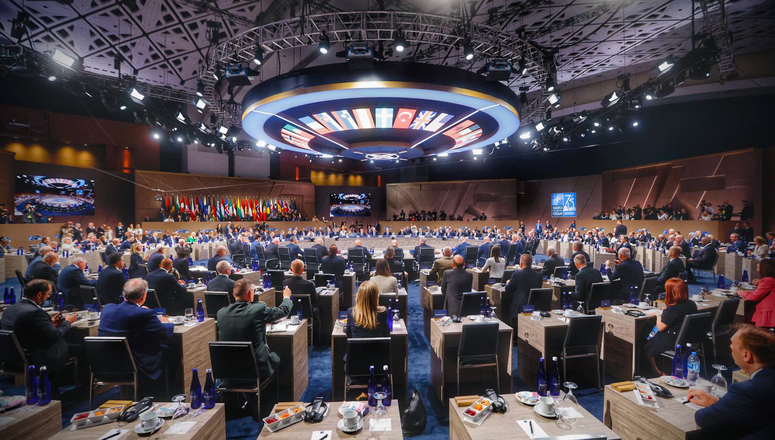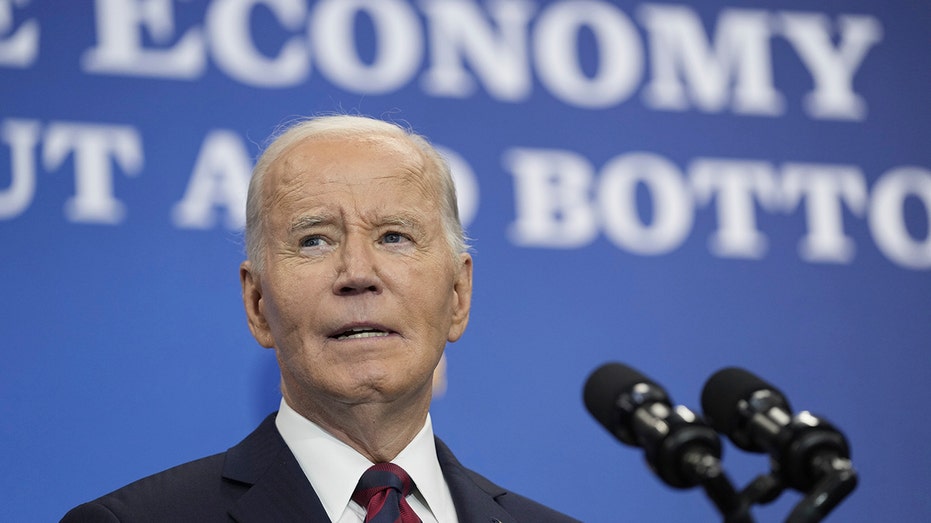Trump hasn’t helped working-class men — but Harris and Walz can
The problems of working-class men in American society are in fact very real and getting worse — and they won’t be solved by empty promises.

Former President Donald Trump makes many extravagant promises and claims on the campaign trail. But especially for his political base of working-class men, he delivered very little economically when in office.
Trump actually presided over the loss of 2.7 million jobs, including thousands of manufacturing jobs, in part because of his disastrous mishandling of the COVID pandemic. Now, economists on both right and left agree that his new proposals of huge tariffs would hurt consumers without benefiting workers, acting as a net negative for the economy.
It’s clear that Trump’s main appeal to his male working-class base is about stoking grievance and resentment, not actually delivering economic value — a process that, over time, only deepens cynicism and anger. Trump conjures up increasingly outrageous lies, spiked with insults and barely veiled threats of state violence against political adversaries, with the aim of titillating disaffected young men in particular.
And yet the problems of working-class men in American society are in fact very real and getting worse — and they won’t be solved by empty promises.
As leading sociologist Richard Reeves and others have documented, men now die six years earlier than women, up from just two years a few decades ago. This is “largely because of increased “deaths of despair,” which include drug overdoses and suicide. “The risk of dying from suicide is four times higher for boys and men than women with about 40,000 men being lost to suicide each year, about the same as the number of women who die from breast cancer,” Reeves notes.
Boys are also falling far behind in academic performance at every level, with the ratio of college undergraduates at nearly two female undergrads for every one male. This makes it far harder for men to earn salaries to support families and compete in the modern information economy. Not surprisingly, men are increasingly dropping out of workforce even during what should be their most productive years, with ever larger numbers not engaged in relationships or marriages and withdrawing from society.
As Idrees Kahloon with the New Yorker has noted, “men are powering the new brand of reactionary Republican politics, premised on a return to better times.” But Trump has no serious plans to make times better for men.
Among Democrats there has been a tendency for many years to focus on issues important to women voters, given the huge gender gap, with large majorities of women preferring Democrats and men more often supporting Republicans. Polls now show that the gender gap, already conspicuously large in previous elections, has widened even further since Kamala Harris and Tim Walz became the Democratic nominees.
A recent New York Times poll of three key swing states (Michigan, Pennsylvania and Wisconsin) found that 55 percent of registered voting men supported Trump compared to just to 39 percent of women. This helps explain why issues like abortion have become such a point of emphasis for Harris-Walz and other Democratic candidates. But it also means that Democrats have a huge opportunity to appeal to men for whom Trump has not delivered.
To their credit, the Harris-Walz campaign has finally begun to reach out more directly and specifically to American men, especially those in the working class. Walz recently held a media blitz in swing states to “reach out to persuadable men,” while also mobilizing surrogates through an “Athletes for Harris" program co-chaired by basketball stars Stephen Curry, Magic Johnson and Chris Paul.
Just last week, Harris unveiled a new initiative aimed specifically at Black men. The Opportunity Agenda for Black Men includes a million forgivable $20,000 loans to Black entrepreneurs and others to start businesses, as well as proposals to invest more in apprenticeships in Black neighborhoods, to recruit and retain more Black male teachers, and a health equity initiative aimed at the needs of Black men. As Kahloon put it, life prospects for Black men “have been decimated by decades of mass incarceration” — especially those without college degrees, “whose wages have fallen in real terms, whose life expectancies have dropped markedly, and whose families are fracturing at astonishing rates.”
But the Harris-Walz campaign must also create more opportunities programs directed at helping young men all races and backgrounds, especially those without college experience, to deal with employment, health, training and related challenges.
For example, while the government rightly has many women’s health programs, many members of Congress are advocating creation of a Federal Office on Men’s Health along with studies on the effectiveness of federal outreach related to men’s health initiatives. Harris has also come out supporting a change to allow job applicants without college degrees to qualify for many federal jobs. And, as a senator, Harris introduced the 21st Century Skills Act to expand funding for workers and job seekers to use for training programs (sadly, the bill did not become law).
Yet her campaign must put forward more serious efforts to link young men to education and training directly tied to employment, particularly those in rural areas, helping them gain independence and stature in their communities.
The Democratic Party platform calls for free community and technical college and urges new investments in apprenticeships and career and technical education. If elected, Harris must fight hard to see that the best of these programs are enacted in a way that can actually help our young men, as well as women, regain employment and educational opportunities and a steady place in society.
This is not just a political problem — it is about helping our nation successfully deal with the many wrenching economic and sociological changes we have experienced in recent decades, and maybe even reducing the culture war appeal that has been driving us apart.
Paul Bledsoe is a professorial lecturer at American University’s Center for Environmental Policy. He served on the staff of the U.S. Senate Finance Committee under Chairman Daniel Patrick Moynihan (D-N.Y.).



